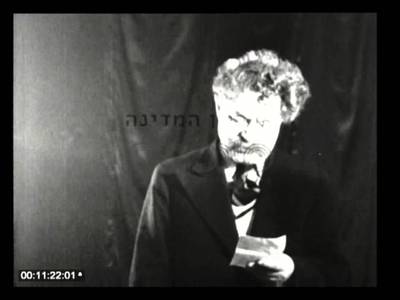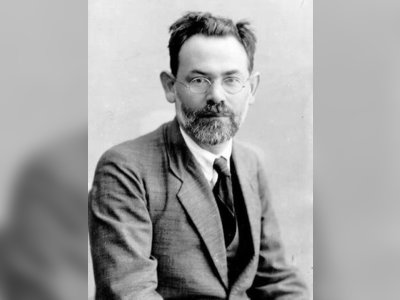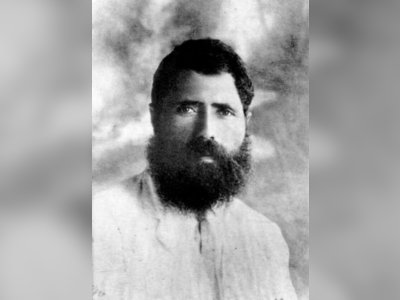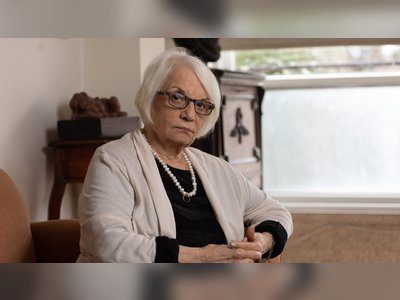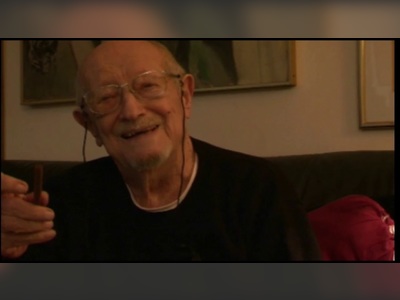Eli Amir: Bridging Divides and Promoting Cultural Exchange
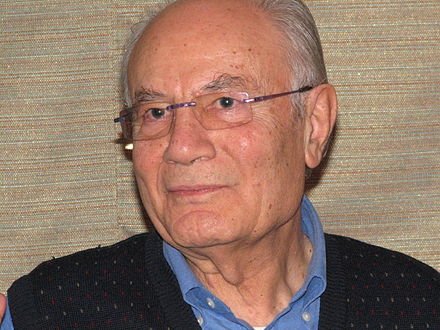
Eli Amir, born on September 26, 1937, is a prominent Israeli author known for his literary contributions, social activism, and dedication to bridging societal gaps. His work has centered on youth welfare, aiding families in need, and fostering an appreciation for the Jewish cultures of Arab lands.
Biography
Eli Amir was born in Baghdad, Iraq, under the name Fuad Elias Nasch Helsche. He arrived in Israel at the age of thirteen, settling with his family in an immigrant absorption center before joining a youth group associated with the Aliyat Hano'ar movement. Later, he relocated to Kibbutz Mishmar HaEmek.
In interviews and his book "Tarnegol Kaparot" (Cock of Villages), Amir described the challenges he faced during his time at the kibbutz, where he encountered condescension and discrimination from European-born kibbutz members.
In 1954, he moved to Jerusalem independently and began studying at an Arab school for working youth while working as a messenger in the Office of the Prime Minister. After completing his studies, he enlisted in the Israel Defense Forces (IDF).
According to Amir, his years at Mishmar HaEmek were pivotal, marked by conflicts with both external pressures and internal struggles. Despite these challenges, it was a blessed period for him as it exposed him to the culture of the land and the Western world. During this time, he encountered the founding fathers of the kibbutz movement, whom he regarded as role models.
He believed that the suppression of one's culture by another was wrong, emphasizing that it was impossible to detach a person from their cultural roots. While he valued Western culture, he advocated for gradual, balanced change, one that respects the pace and needs of each group and tribe, as an addition rather than a replacement.
In his books, he explored themes such as immigration and absorption, cultural transformation, East vs. West, the foreigner and the outsider, the weak vs. the strong, and the veteran vs. the newcomer. He emphasized the need for self-adjustment in a changing society.
In 2006, blogger Uri Katzir, along with other individuals, proposed Eli Amir as a candidate for the presidency of Israel. This proposal garnered widespread attention in the Israeli media and particularly in the Arab media.
The Egyptian magazine "Roz Al-Youssef" praised the suggestion and emphasized that Amir's creation was deeply rooted in the Arabic language and culture. Amir hoisted the flag at Israel's 69th Independence Day celebration, marking fifty years since the reunification of Jerusalem.
Amir has three children.
Career
After completing his service in the IDF, Amir served as the head of the archives department at the Office of the Prime Minister and began his studies at the Hebrew University of Jerusalem, focusing on Middle Eastern studies and Arabic literature.
From 1964 until the end of 1968, he worked as the chief assistant to the Prime Minister's Advisor on Arab Affairs. Immediately after the Six-Day War, he managed the office of the Advisor in East Jerusalem.
In late 1968, he was invited by Lova Eliav, the Deputy Minister of Immigrant Absorption, to join the founding team of the Ministry of Immigrant Absorption, headed by Minister Yigal Allon. He served as an aide to Lova Eliav and Shimon Peres, the Minister of Immigrant Absorption after Yigal Allon.
During his tenure at the Ministry, he held various positions, including department head, district manager, deputy director-general, and director-general. During this period (1975-1978), Amir served as the CEO of the Federation of Spanish Jews in the United States and later as the coordinator for the repatriation of new immigrants.
In 1984, he was appointed as the CEO of Aliyat HaNo'ar (Youth Aliyah) at the Jewish Agency, a position he held for twenty years. He was responsible for at-risk Israeli youth and played a crucial role in the absorption of Ethiopian Jews and Jewish immigrants from various countries.
During his tenure, Youth Aliyah became the largest it had ever been, demanding enhanced educational support for its students, including most of the new immigrants, in matriculation exams. He also advocated for involving students' parents in their educational process.
Amir instilled values of tolerance, acceptance of different languages and cultures, and encouraged contributions to society and the country while maintaining an openness to the cultures of others. He was one of the founders of the integrated educational community, along with Lova Eliav and Uri Gordon, and served as its chairman for twenty years until his retirement.
Amir served as a visiting lecturer at universities in Israel and abroad, covering various subjects. He contributed to newspapers in Israel and worldwide and, for many years, participated in a weekly radio program on Radio B with Geula Cohen, known as "Al Yamim ve'Al Smol" (On the Right and on the Left).
Throughout his life, Amir worked tirelessly to reduce societal disparities in Israel, cared for disadvantaged youth and families, promoted the learning of the Arabic language, literature, culture, and music of the Arab countries, and conducted history lessons in schools about their heritage.
He served on numerous public and governmental committees, including the "Prime Minister's Committee for Children and Youth in Distress," chaired by Golda Meir. He advocated for peace and dialogue with the Arab world, participating in dozens of conferences with Palestinians and delegations from Arab countries. He also represented Israel on the Multilateral Committee for Arab Refugees under the Oslo Agreement.
Eli Amir has been a member of the Board of Directors of the Youth Hostels Association of Israel since 2008. He is also a member of the Education Committee of ANA. He is a member of the Public Council of the New Israel Fund.
He was a commentator on Kol Israel in Arabic after the Six-Day War.
In September 2020, Amir was awarded the "Honorary Fellow" title for 2020 by the Ben-Gurion University of the Negev, Tel Aviv University, and Bar-Ilan University.
The city of Nahariya named a street in the Yitzhak Rabin neighborhood after Eli Amir.
Literary Career
In an interview with "Haaretz Literary Supplement" on February 8, 1985, Eli Amir revealed that he began writing in 1970 and found the process challenging.
Amir's books achieved great popularity, with translations into numerous languages, including Arabic, and enjoyed widespread success and recognition. He received numerous awards, including the prestigious Yigal Allon Prize for Outstanding Pioneer Work and the 2019 Brenner Prize.
He was honored as the favorite son of Jerusalem and an honorary citizen of Tel Aviv. He holds honorary doctorates from the Weizmann Institute of Science, Ben-Gurion University of the Negev, Tel Aviv University, and Bar-Ilan University.
In 2011, Rachel Abraham-Eitan published a book titled "From Baghdad to Israel: An Examination of the Trilogy 'Mifrih HaYonim,' 'Tarnegol Kaparot,' and 'Yasmin,'" which discusses Eli Amir's literary contributions.
The German magazine "Der Spiegel" compared him to the Egyptian Nobel laureate Naguib Mahfouz in an article about his book "Mifrih HaYonim." Similar comparisons were made by the Swiss Neue Zürcher Zeitung and the Egyptian October magazine, which also referred to him as an Israeli Mahfouz.
- אלי עמירhe.wikipedia.org
